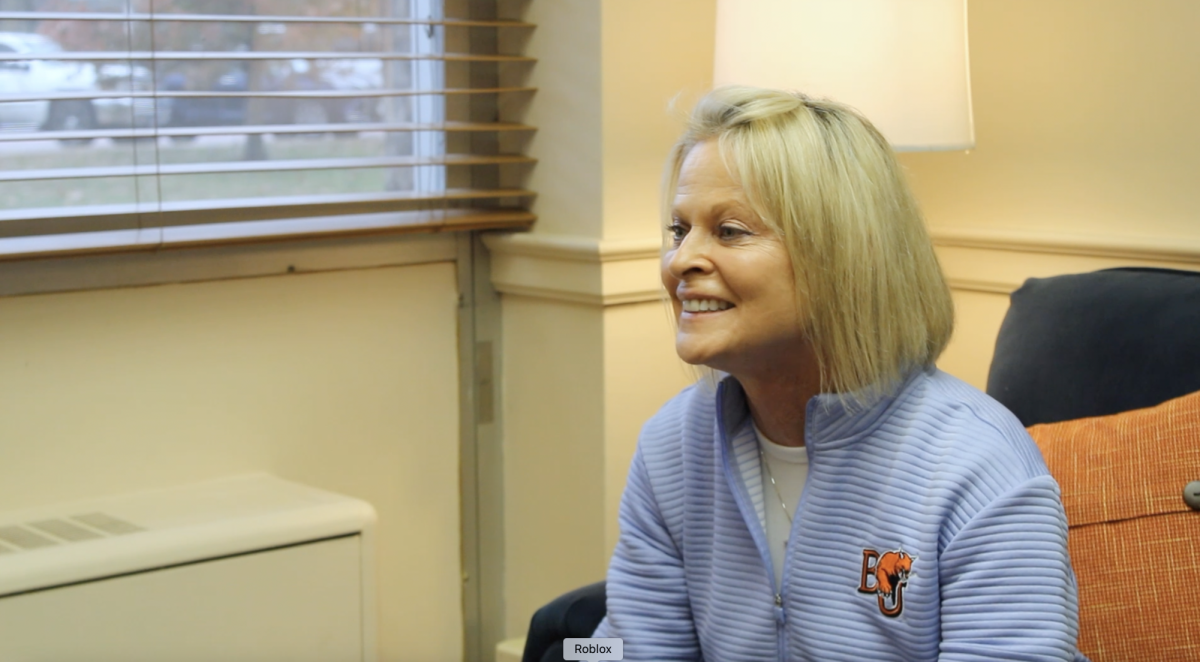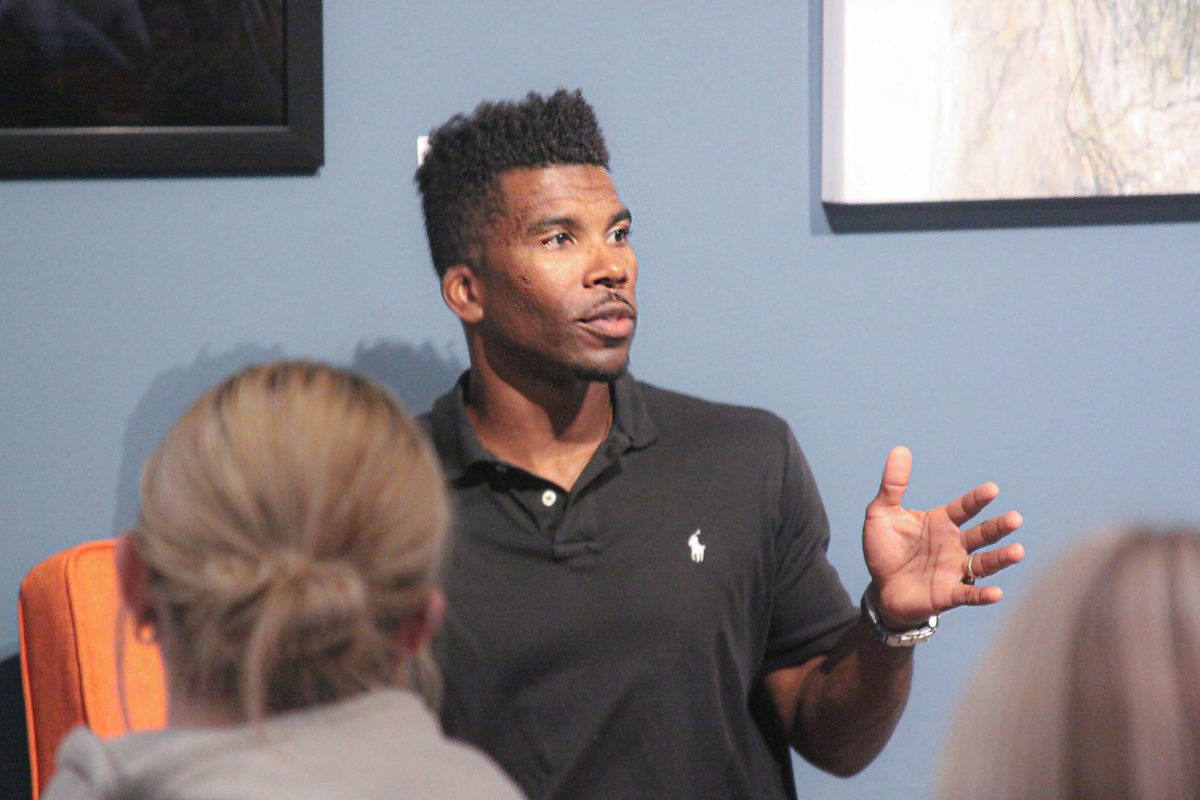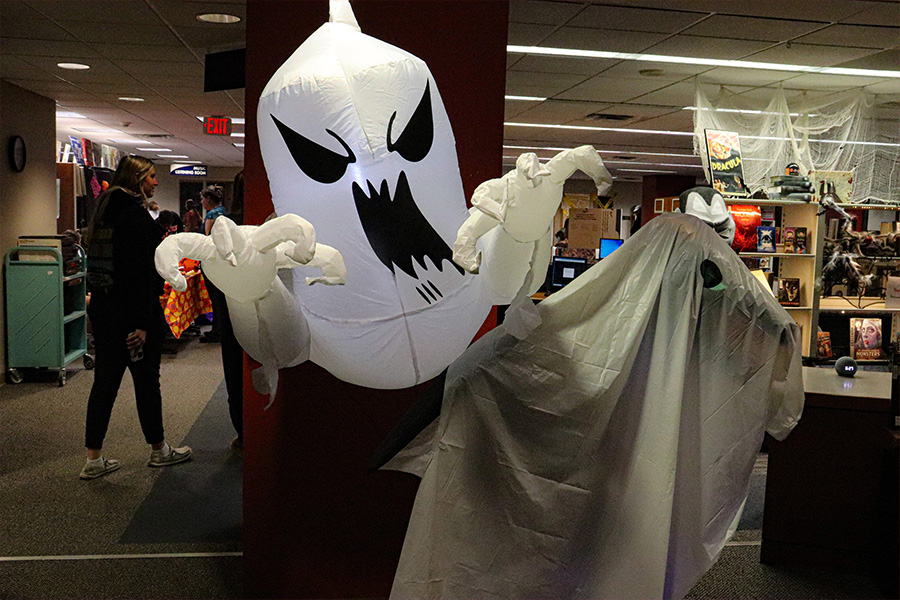Baker University junior Tom Lowndes makes sure he sees his girlfriend every day. Sometimes they do their homework together, and other days they just sit and talk.
Their daily chats don’t come without a challenge, though.
While Lowndes goes to school at Baker, his girlfriend is a student at Simon Fraser University in Burnaby, British Columbia.
Lowndes and his girlfriend are able to talk thanks to Skype.
Skype, a communications system, is becoming a fad for people across the world. It allows users to call landlines and mobile phones in different countries, video chat for free, and message and call to computers.
Skype started in 2003, and has had 20 million users online at once. To use Skype, a person must register online and download the program.
Skype is gaining popularity with Baker University students studying abroad and with students like Lowndes, who are trying to make a long-distance relationship work.
“It’s the easiest way to communicate because phone bills can get pretty expensive,” Lowndes said. “We probably Skype once a day.”
Junior Matt Ellis is studying abroad in Australia at the University of Newcastle in Newcastle, New South Whales, while girlfriend junior Caitlin Seals Schwanke, studies abroad in England at Harlaxton College.
Ellis and Seals Schwanke also use Skype to keep their relationship strong and remain in contact despite the time difference and the thousands of miles that keep them apart.
“We video chat about three-to-five times weekly if we’re lucky,” Ellis said in an online interview.
Ellis also said he uses Skype to keep in touch with his friends and mom.<br/>Lowndes, like Ellis, uses Skype to talk with his parents in Wales , which is in the United Kingdom. He started using Skype to call home because the rates are so affordable.Lowndes, like Ellis, uses Skype to talk with his parents in Wales , which is in the United Kingdom. He started using Skype to call home because the rates are so affordable.
Lowndes, like Ellis, uses Skype to talk with his parents in Wales , which is in the United Kingdom. He started using Skype to call home because the rates are so affordable.
“I just would buy calling cards and it’s a lot cheaper than that,” Lowndes said.
Lowndes uses Skype to video chat his parents since he does not get to go home often. This way, they are able to see his face rather than just hear his voice over the telephone.
Sophomore Brie Lowrey is trying out Skype, but isn’t into the growing phenomenon as much as others. After being badgered by a friend, Lowrey joined over spring break so they could keep in touch during the week off. She has only talked to three friends over Skype, and is not as active with the program yet.
“I’ve pretty much only used it a couple days over spring break,” Lowrey said. “I haven’t used it yet since we’ve been back from spring break.”
Lowrey said if she continues to use Skype, it probably will be in the summer when school is out.
A large reason so many people are attracted to Skype is because it is a free form of communication to people around the world. There is not a limit to the time a person can chat.
Lowndes said he has had a video chat that has lasted for more than four hours, something he probably couldn’t afford if he had to pay for the phone service.
Aside from dropped calls and the occasional static, Skype seems to be reliable. Lowrey said she sometimes experiences static or weird voices, but that it probably just depends on the Internet connection.
“It’s got its faults,” Lowndes said. “Every now and again it will just, like, drop your call. But it’s free and it’s pretty good quality, so you can’t really complain.”
Word of Skype is getting around mainly by friends recommending it to other friends. Ellis, Lowndes and Lowrey all looked into using Skype after a friend had mentioned it to them, and the video chat feature is what seemed to hook them all.
“I can still see and talk to someone who is literally halfway around the world,” Ellis said. “That is unbelievable.”







